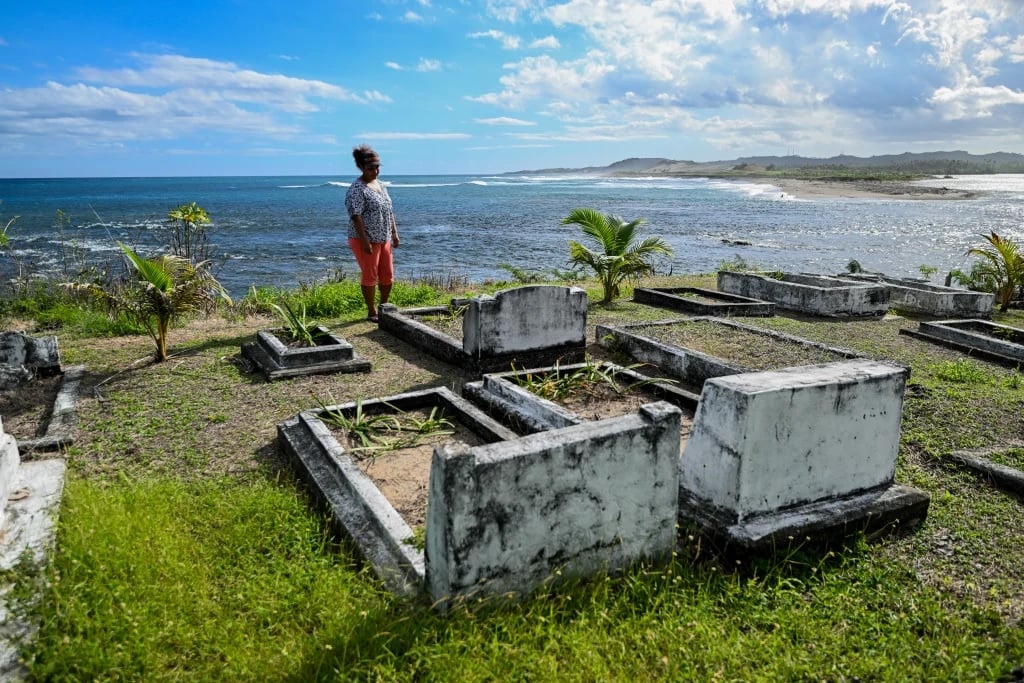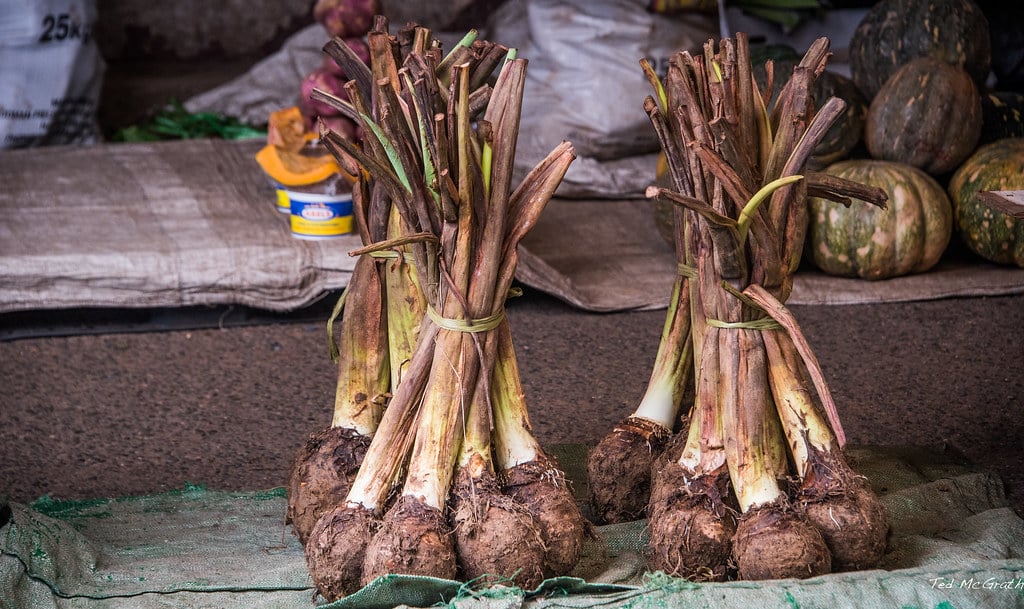Hydroponic kits as farming methods were adopted in informal settlements to increase food security as a response to the COVID-19 pandemic and climate resiliency.
The UNDP Pacific Accelerator Lab together with UN-Habitat is testing the adoption and uptake of hydroponic kits as farming methods to increase food security in informal settlements as a response to the COVID-19 pandemic and climate resiliency.
The increase of informal settlements and urban informality is a global phenomenon accompanying the growth of urban populations, with an estimated 25 percent of the world’s urban population living in informal settlements. People living in informal settlements suffer spatial, social and economic exclusion from the benefits and opportunities that are available in the broader urban environment. Characterized by inadequate housing conditions, limited access to basic services, and high levels of poverty, informal communities are particularly vulnerable to the socioeconomic impact of COVID-19. Furthermore, many informal settlements are on the frontline in the battle against climate change as they are located in areas which are highly vulnerable to climate-related disasters, such as flooding and cyclones. Yet, these informal settlements are also a warehouse of innovative ideas and concepts.
For Fiji, informal settlements in cities such as Suva and Lautoka, and towns like Sigatoka and Nadi are witnessing rapid growth in household numbers. The Accelerator Lab Pacific partnered with UN-Habitat and carried out a solutions exploration tour of thirteen informal settlements in the central and western parts of Fiji (in Lami, Sigatoka, Nadi and Lautoka municipality) to identify food and income coping mechanisms/strategies implemented by locals living there and if the AccLab could subsequently venture into testing the adoption and uptake of hydroponic kits as an additional farming method to increase food security.
Upon entry to the majority of these informal settlements, we were greeted by COVID-19 billboards, which have been painted and erected by the individual communities in collaboration with UN-Habitat under a COVID-19 emergency response project.
Our tour with the community leaders and the locals revealed the formulation of new concepts and ideas by communities themselves for food and income security. We noted the development of new agricultural models and concepts as a response to address rising food insecurity in the informal communities of Fiji. During the tour, we also realised that some settlements stood out as outliers in the context of food security while others stood out in the context of income generation from recycled waste materials.
We observed that both Bilo and Naqiroso were engaged in agricultural farming practices that supported sustainable crop production systems. Both communities displayed creativity and developments in the selection of seeds, crops and cultivars using their traditional wisdom. We learnt that communities that previously did not prioritize gardening to aid their food consumption, however due to COVID-19, they are recognizing the need to be strategic about what they are planting and their traditional knowledge systems for greater yield and productivity. For example, households in Nagiroso are able to grow cassava in coastal black sands which are exposed to saltwater from high tides and seawater sprays.
There was also evidence of both communities practising solesolevaki – collective community effort to respond to the food insecurity. Their farming systems for crop predominantly took an ecosystem approach in the form of a more diversified and integrated system, meaning households were engaged in many possible combinations of traditional practices and were flexible to adapt them according to their local production conditions and constraints such as climate, weather, land availability, community economic status, and decision making.
Both the communities also deployed innovative agricultural strategies such as the practice of shifting cultivation (slash and burn method and the practice of land fallowing of sugarcane lands) for the management of pest and weed populations, and the use of organics for improving the application of fertiliser and nutrient management through natural composting and mulching, which explained the agricultural productivity growth that we observed. Both, the shifting cultivation and fertiliser and nutrient management techniques were aimed at improving productivity and reducing the environmental pollution.
Already faced with limited access to clean drinking water and electricity as well as transportation, the lockdown period in Suva was an added challenge to the Bilo community. The lockdown forced the community to re-engage in indigenous agricultural practices such as the traditional methods of farm irrigation, terracing and swamp-draining systems which helped the community to become self-sufficient in the long run by increasing both food accessibility and availability. As a result, almost all their food intake came from their farms during the lockdown period.
Similarly, COVID-19 forced the Naqiroso community to clear sugarcane farms and convert it to community farming. Here, each household owns a piece of land on the community farm on which they grow various types of crops. Members of the community are welcome to harvest from everyone’s farm but must ensure that they restock or replant the produce extracted. Communities explained that such a model has worked for them in practice. The community also made the decision not to sell the surplus produce on the roads or at the municipal market, but to sell it off door to door. The community is also faced with theft from their farms, but they look at it from the perspective that at least someone is being fed from their farms even if the product is getting stolen.
For Vunato and Veidogo, we observed that a large proportion of households are engaged in recycling from a nearby dumpsite for income generation by sorting PET bottles, metals, plastics, etc. and selling it to recycle centres, and repurposing materials such as mannequins into scarecrows in their small farms, wooden pallets into building materials for houses, and flat irons and roofing materials for makeshift shelters.
Empowering the Local Informal Communities
Our solutions exploration tour in many of the informal settlements illustrates the creativity of empowered communities in the face of disturbances such as COVID-19. As we walked through and immersed ourselves with the informal communities, we were reminded that ultimately, a more practical and sustainable solution in informal settlements would be to empower households to develop their own ingenious concepts and ideas and shape them into realistic and quantifiable plans. As development practitioners, we need to provide the right tools such as voice and stake in development that can put communities on track to implementing their own solutions. Nonetheless, since after the solutions exploration, The UNDP Pacific Accelerator Lab team together with the UN-Habitat and the Ministry of Housing and Community Development in Fiji have embarked on testing the adoption and uptake of Deep Water Culture (DWC) hydroponic kits as an additional solution towards increasing food security for the at-risk and vulnerable households in the informal settlements, using a positive deviant hydroponic farmer, the learnings from it which will be produced later in another blog.



